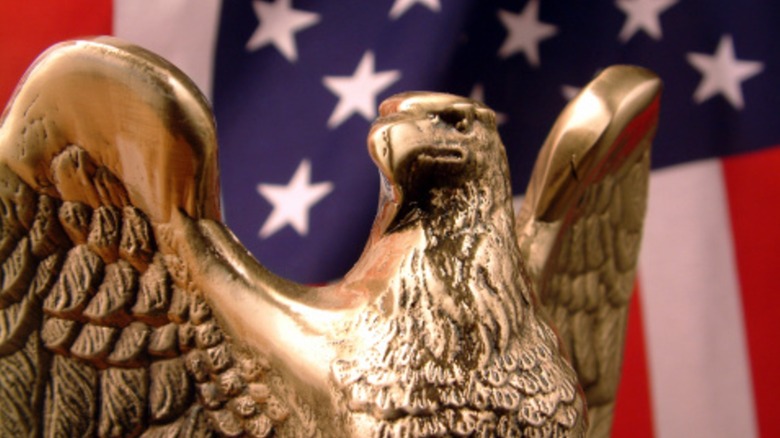What Does JAG Stand For In The Military & Why Are They Important?
The U.S. military has just about every job you could imagine among its ranks. There are pilots who get the opportunity to fly some of the best fighter jets in the world, submariners who can live aboard and operate the deadliest attack submarines in the U.S. Navy, and soldiers who can to take to the battlefield with the U.S. Army's biggest battle tanks. There are also jobs similar to those found in civilian life, including mechanics and lawyers. When military personnel need a lawyer, they don't get a public defender because they need somebody well-versed in the Uniform Code of Military Justice. As a result, those in the armed forces get somebody from the JAG Corps, rather the Judge Advocate General Corps.
When service members require representation in a courtroom, it's a JAG that represents them. They will act as defense counsel as well as prosecutor in a trial and will defend servicemembers as part of a courts-martial. They're well trained in all areas of the law, including tort, criminal, labor and employment, contract, and even environmental law.
The eligibility to join the JAG Corps for each branch varies. The Army requires candidates to have a Juris Doctor law degree from an American Bar Association-accredited law school while the Navy only requires an applicant be a student at an American Bar Association-accredited law school.
JAG Corps history
Every branch of the military has its own JAG Corps, but they each took a different path to become what they are today. The Navy's JAG Corps didn't come to be until 1780 after Congress signed the bill that created the billet of Judge Advocate General of the Navy. This took some convincing from William Butler Remey, a colonel in the Marine Corps and first uniformed chief legal officer of the Navy. The U.S. Army, on the other hand, has had its JAG Corps since 1775. Its founder? None other than George Washington when he was a general for the First Continental Army. The Army's JAG Corps has had to privilege to draft Abraham Lincoln's Lieber Code as well as an early iteration of the laws of war.
However, the Air Force hasn't had its Judge Advocates for nearly as long as its sister branches. The branch wasn't founded until after World War II. And Congress passed the Air Force Military Justice Act in 1948, thus creating the Office of the Judge Advocate General. Judge Advocates worked as part of the Air Force's Judge Advocate General's Department, but it was renamed to the JAG Corps –following suit with the other branches– in 2003.
A few years prior to the Air Force establishing its Judge Advocate General's Department the Navy established the Naval Justice School in California to "provide legal training for all Navy, Marine Corps, and Coast Guard lawyers, enlisted legal professionals, active and reserve," according to the Navy.
Judge Advocates do more than work in a courtroom
The courtroom isn't the Judge Advocates' only domain within the military. They provide a whole slew of services, for which they're trained from the start. One might find themselves in the courtroom as a defense attorney or prosecutor, the more seasoned Judge Advocates can be the military judge presiding over the case. Just as corporations have in-house legal departments to ensure they're staying within the bounds of the law, Judge Advocates provide administrative counsel to high-ranking officers, ensuring they're compliant with government ethics, military personnel law, and regulatory law.
Oftentimes, they act as advisors to high-ranking officers on foreign and domestic laws that have an impact on operational plans. They can help those in command recognize their limitations when it comes to operating in domestic territory as well as keep them apprised of specific treaties and customary international law when the use of military force is being used overseas.
The JAG Corps isn't just a vital component of the military for its servicemembers. It also provides services for their families. Judge Advocates rarely stay in one station for longer than three years, rotating legal disciplines every two to three years.


